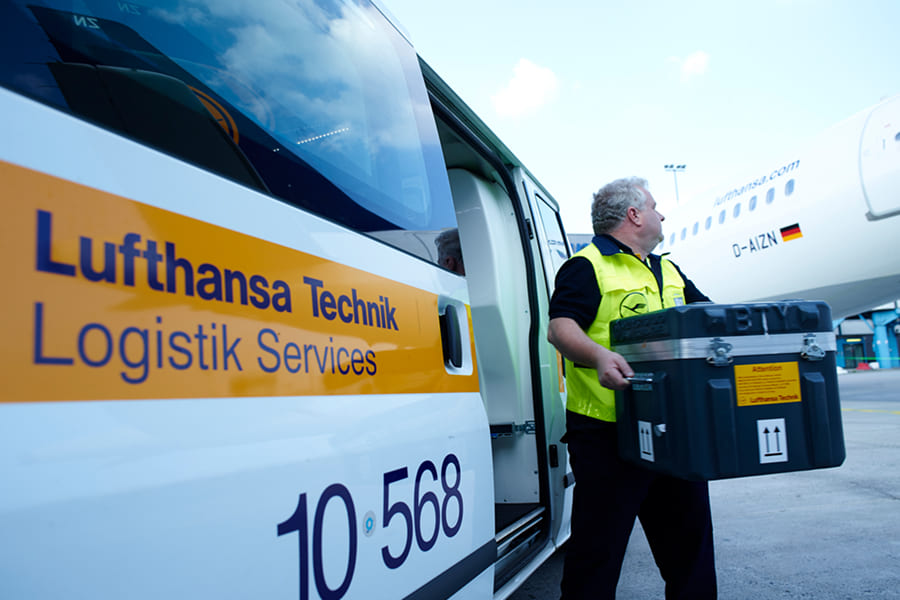In an increasingly digitalized business world, the topic of fleet management is gaining massive importance. Today, companies with their own vehicle fleets face complex challenges: rising operating costs, legal requirements, growing demands for sustainability and efficiency. These requirements can only be mastered with centralized, digital management. This is precisely where modern fleet management comes in – as a strategic interface between vehicles, drivers, data and digital systems.
Contents
What is Fleet Management?
Fleet management, also known as vehicle fleet management, covers the entire organization, monitoring and optimization of all processes relating to a company’s vehicle fleet. These include:
Procurement and decommissioning of vehicles
Maintenance, repair and claims management
Driver management and driver’s license control
Cost control and contract management
Compliance with legal regulations
Planning and evaluation of trips
Integration of modern telematics systems
A digital fleet management system combines these tasks in a central platform that connects all parties involved, automates processes and provides meaningful insights into fleet usage. In addition, modern systems enable automatic reminders for maintenance appointments, seamless communication with drivers and links to other business solutions such as ERP or accounting systems. This comprehensive integration creates a holistic overview of the fleet – including costs, capacity utilization, CO₂ values and potential optimization potential. This makes fleet management not only more efficient, but also strategically controllable.
Why is digital fleet management indispensable today?
Traditional methods such as Excel lists or paper-based logbooks quickly reach their limits in modern fleet management. They offer neither the necessary transparency nor the efficiency or legal certainty that are required in day-to-day business today. Instead, more and more companies are turning to digital solutions that bundle all data relating to vehicles, drivers and processes and make it available on a central platform.
A modern fleet management system makes it possible to digitally manage contracts, vehicle data and driver profiles and automatically monitor maintenance cycles, lease terms and MOT appointments. Electronic logbooks can also be seamlessly integrated, making it much easier to document all vehicle-related processes. In addition, the connection of telematics systems allows precise monitoring of driving behavior and fuel consumption – important factors for safety and efficiency. Intelligent route planning also helps to increase productivity and deploy resources in a more targeted manner.
Especially for larger fleets or decentrally organized locations, this form of central control proves to be a decisive advantage. It ensures clear structures, better planning and significantly reduces the administrative workload – an important step towards sustainable fleet management.

With our fleet software, you can manage your fleet digitally, cost-effectively and transparently
Data protection & GDPR: Data security in digital fleet management
In addition to efficiency gains, the increasing digitalization of fleet management also brings with it new data protection requirements. Modern fleet management systems process sensitive data – such as driver data, driving behavior, locations and contract information. Companies are therefore obliged to ensure data security in accordance with the General Data Protection Regulation (GDPR).
A professional fleet management system offers clear advantages here:
- Automatic deletion periods and archiving
- Role-based user rights to prevent unauthorized access
- Relevant data protection functions such as audit trails or logging
- Secure cloud or on-premises storage to the highest standards
Those who rely on a data protection-compliant solution not only protect personal data, but also secure the trust of drivers, partners and authorities.
People at the center: drivers and those responsible
As important as digital processes are, people also count in the end. Well-organized fleet management not only relieves the burden on the fleet managerbut also the drivers. They benefit from clear processes, simple communication and intuitive digital solutions – for example via an app or driver portal.
At the same time, the demands on management are increasing: legislative changes, tax regulations, CO₂ reporting and safety requirements demand regular training, strategic thinking and data-driven decisions. Modern systems provide the necessary transparency to take responsibility for the fleet effectively – from the logbook to compliance with internal guidelines.
Best practices: What makes for successful fleet management
Successful fleet management involves far more than just vehicle management. Companies that strategically align their fleet management and comprehensively implement digital solutions benefit from measurable advantages in the long term.
Practical examples show this:
- Savings on maintenance costs thanks to automatic reminders and targeted planning
- Reducing downtime through preventive measures
- Faster response times in the event of damage thanks to digital documentation
- Better basis for decision-making thanks to relevant evaluations and reports
What is important here is that the introduction of a fleet management system should be considered holistically from the outset – with a focus on processes, training and interfaces to existing IT systems. In this way, fleet management becomes a real success factor in the company.
Cost reduction, compliance, sustainability: the key objectives
Professional fleet management pursues three central objectives:
- Reduce costs through efficient processes, fewer breakdowns, more favorable contracts and reduced downtimes
- Legal certainty through complete documentation and automated monitoring of regulations
- Sustainability through the integration of e-mobility, efficient use of vehicles and better planning capability
The carbon footprint of the vehicle fleet is becoming increasingly important. Companies that record their emissions transparently and actively manage them strengthen their brand and meet regulatory requirements.
A holistic fleet management system is far more than just an administration tool – it is an effective instrument for organizing mobility in an economical, compliant and responsible manner.

For whom is fleet management worthwhile?
The question today is not so much whether, but how a company implements fleet management. Even small fleets with ten or more vehicles benefit significantly – be it through less effort, lower error rates or better vehicle utilization.
Fleet management is particularly worthwhile for:
- Medium-sized companies in trade or field service
- Large companies with branches in Germany and abroad
- Service providers with high vehicle rotation (e.g. logistics, delivery)
- Leasing companies and car rental companies
- Public bodies, municipalities and social institutions
The more automated and digital the processes, the greater the added value – regardless of the size of the fleet.
Fleet management for e-vehicles: challenges and opportunities
The transition to electromobility is also fundamentally changing fleet management. The use of e-vehicles brings with it new requirements for processes and systems – be it in the planning of charging infrastructure, range optimization or the administration of subsidies. Modern fleet management systems offer practical solutions for this, for example by intelligently planning charging times and automatically integrating charging cycles into the timetable. At the same time, they enable real-time monitoring of battery status and energy consumption, which not only increases reliability but also makes route planning more efficient.
The optimization of driving profiles and routes, taking vehicle range into account, is also increasingly being mapped automatically. In addition, environmental key figures can be precisely evaluated – for example for ESG reporting or to apply for subsidies. The comprehensive digitalization of the fleet thus creates the prerequisites for managing sustainable mobility strategically and intelligently – even in mixed fleets of combustion engines and electric vehicles. Companies that rely on suitable systems at an early stage not only shape the transformation efficiently, but also gain a clear competitive advantage.
Looking to the future: developments in fleet management
The future of fleet management is data-driven, automated and networked. The following developments are already emerging:
- Artificial intelligence for predictive maintenance (e.g. detecting impending failures)
- Intelligent driver assistance systems to increase safety
- CO₂ monitoring and sustainability KPIs
- Cloud-based systems for mobile working in fleet management
- Cross-platform connection of telematics, fuel cards, leasing data and much more.
Developments in fleet management clearly show that digitizing and automating processes today creates the basis for sustainable efficiency, cost reduction and regulatory security. Software solutions make fleet management fit for the future – both for traditional fleets and for the use of e-mobility. Companies that focus on these relevant innovations at an early stage not only benefit operationally, but also position themselves strategically as pioneers in their industry.
Minimize your fleet costs with our fleet management software Fleet+
FAQ - Frequently asked questions about Fleet Management
Fleet management refers to the digital management and optimization of all processes relating to a company’s vehicle fleet – from procurement to decommissioning.
Automation, AI-supported maintenance forecasts, CO₂ tracking and integrated telematics solutions will be crucial in the future.
Typical tasks include vehicle management, driver management, maintenance planning, cost control, damage documentation and compliance with legal regulations.
For all companies with several vehicles – especially in field service, logistics or the service sector.
Fleet management reduces costs, increases transparency, ensures compliance and enables sustainable use of the fleet.
Conclusion on fleet management
- Digital fleet management significantly simplifies vehicle fleet management. Automated processes and centralized systems ensure greater efficiency, transparency and lower administrative costs.
- Companies benefit from lower costs and better use of resources. Maintenance, driving behavior, contracts and CO₂ values can be controlled and evaluated in a targeted manner.
- Modern solutions meet current data protection and compliance requirements. Data security, GDPR compliance and legally compliant documentation are integrated.
Other useful articles on the subject of fleet management
Fleet Management: Basics, Legal Requirements and Tasks
Fleet insurance: cover for your vehicle fleet
The 5 advantages of fleet management software for your company
Fleet management tasks: The 10 most important fleet activities
10 Tips for Successful and Efficient Fleet Management
Mobility Budget Instead of Company Car: Flexible Mobility for Employees
Bicycles in the company: A sustainable alternative for employee mobility
E-mobility in the Company: 5 Important Points of the Fleet Analysis




